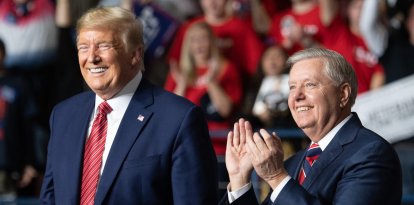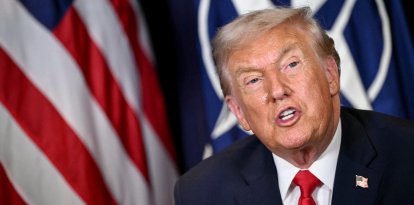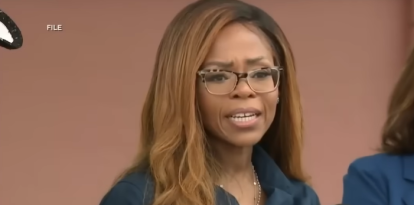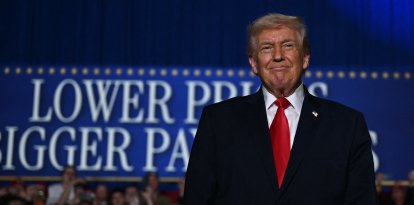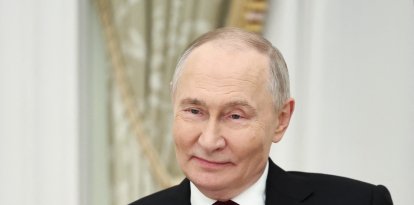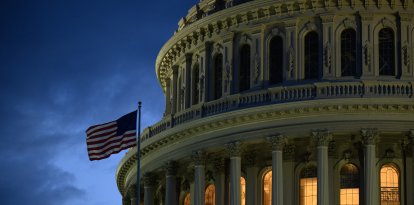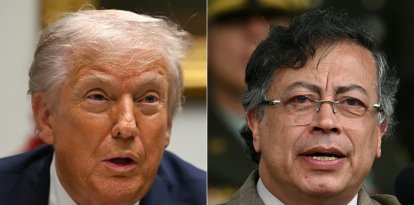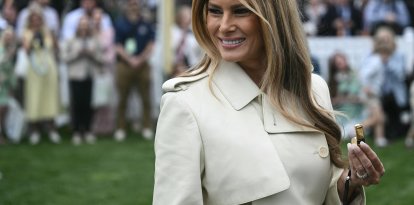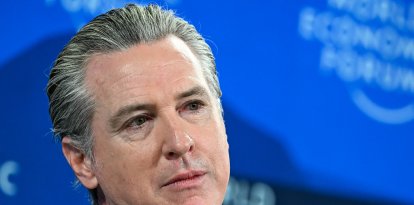Brandon Johnson, the radical pastor's son who wants to end crime in Chicago with social measures
The new mayor, with a background linked to labor unions and the more progressive wing of the Democratic Party, promised to invest in mental health, housing and jobs for young people.

(Wikimedia Commons)
The son of a pastor and brother to nine siblings, Brandon Johnson was quick to become an accomplished example of the American dream after being inaugurated mayor of Chicago. He is a black man born into a working class family who managed to become the alderman of one of the most important cities in the country. Johnson turned his dream to become mayor into a reality after a rise marked by his radical left-wing agenda. He is linked to the unions and the most progressive wing of the Democratic Party. His first four executive orders in office have followed suit.
His first actions as mayor
His first actions were the creation of several deputy mayor positions to address various issues: one for immigrant and refugee rights, another for city safety, and the last to manage labor relations. The fourth order signed by the new mayor within a week of his appointment was to commission a review of the city's budget to find funds for youth employment programs
Johnson managed to prevail over his rival Paul Vallas in the final runoff, appealing mainly to black voters, and using his working class background to curry favor. After the fall of Lori Lightfoot in the first round, hurt by her soft policy on crime, Vallas’ tougher stance on crime seemed to put him ahead in the race.
"I am a reflection of working people"
However, Johnson, the favorite of the city's black citizens, managed to get his message across to working people, his other target constituency. "I am a reflection of working people," he often wielded. Against the heavy-handedness and increased police patrolling the streets to end crime promised by Vallas, Johnson pledged to go to the root of the problems behind crime: mental health, affordable housing, poverty, inequality, etc. He always framed himself as just one man among the peopke, who are "the real engine of change.” The "we" and "united" were much more common in the messages than “I.” He has maintained this rhetoric in the first days of his term.
"Let's create a safe Chicago"
For Johnson,"the policing approach has failed," because the city should be investing in mental health treatment, affordable housing and jobs for young people, rather than policing and incarceration. Following his victory at the polls, he pledged to make the city "truly safer for everyone by investing in what really works to prevent crime."
From "defunding the police" to "supporting law enforcement"
Johnson insisted last Monday: "I am very proud of my work. Too many Chicagoans, however, fear for their safety and when they walk through the streets to do the shopping and drive to the gas station because they our city's homicide and violent crime rates have consistently exceeded to those of other cities in our environment.”
From the beginning of his candidacy, he tried to back away from his anti-police rhetoric, distancing himself from the idea of "defunding the police" that cost Lightfoot so dearly. The new mayor went on to speak of the need to "support law enforcement." During his first days in office, Johnson participated in a tribute to a deceased officer.
Johnson organized the teachers' strike that paralyzed Chicago schools in 2019
Johnson made numerous references to his upbringing in the midst of a large blue-collar family, something he claimed to have shaped and prepared him. "Growing up being one of 10 in a working-class family, it teaches you a lot of things, but I could never have foreseen this [becoming mayor]. Now, make no mistake, that doesn't mean I'm not ready." During his childhood, he assisted his father in religious celebrations and, when he was old enough, he drove the religious congregation's van.
The new mayor worked as a teacher for years in the city's public schools. In 2011 he joined the Chicago Teachers Union, where he helped organize the following year's teachers' strike that paralyzed Chicago schools for two weeks. In the following years, he also collaborated with left-wing candidacies for mayor and local councils.
BLM attacks on police and defense of tenants with criminal backgrounds
In 2018, he prevailed in the race for Cook County Board of County Commissioners. The support of trade unions and left-wing lawyers' groups played an important role in his victory. As a commissioner, he was the main voice behind the Fair Housing Ordinance that prohibited landlords from asking tenants or buyers about their criminal records.
In 2020, in the midst of the unrest triggered by the death of George Floyd, Johnson drafted the resolution titled “Justice for Black Lives,” in which he proposed the reorientation of "policing financing and imprisonment to public services not administered by law enforcement that promote the health and safety of the community in an equitable manner." Although he was re-elected as a commissioner in 2022, he ultimately resigned when he ran for mayor.













